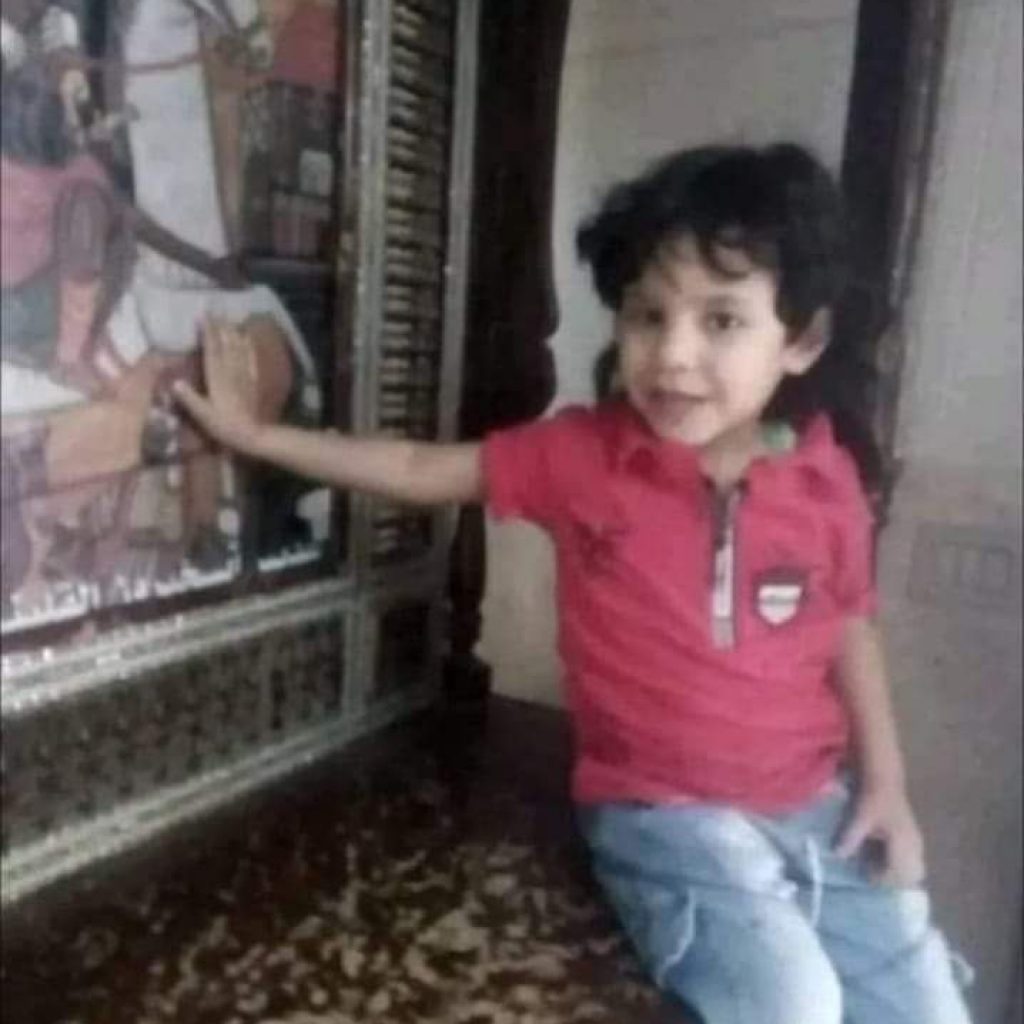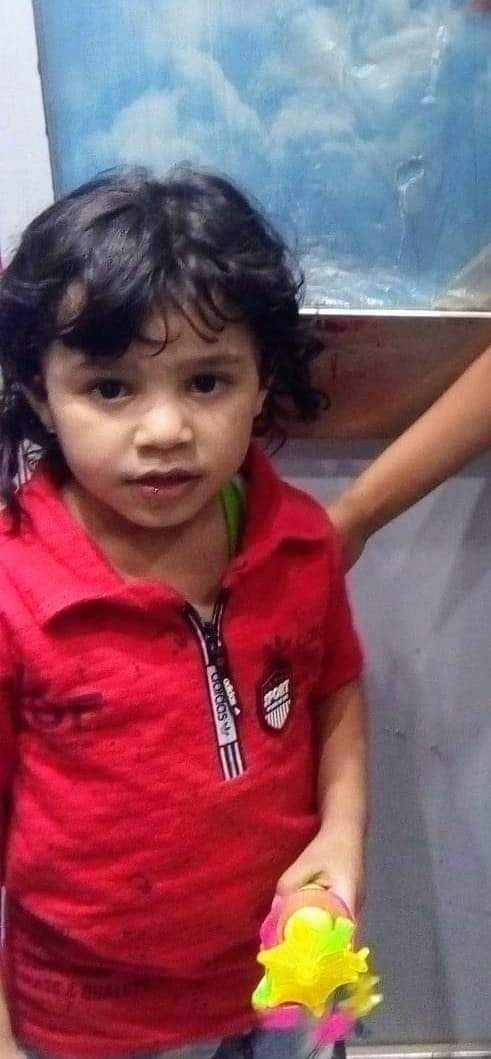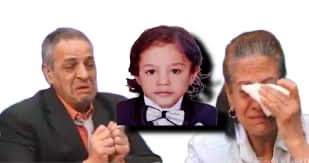By Watani –
The heartbreaking case of five-year old Shenouda who was taken away from the arms of his adoptive parents and placed in an orphanage has been the focus of Egyptian public opinion—and outrage—for some six months now. It has also essentially raised disturbing questions on the public and official levels regarding adoption and foster care in Egypt.
NCHR: securing child’s best interest
Now Egypt’s National Council for Human Rights (NCHR) has decided to join the defence team in the court case aiming to reunite Shenouda with his foster parents. According to Moushira Khattab who heads the NCHR, the human rights council took this decision in order to achieve the best interest of the young boy. The human rights council said that the humanitarian need in the case of Shenouda compelled it to move to secure the child’s right by applying the principles of mercy until the court has its say.
The court adjourned the case to 18 March 2023.

Last January, NCHR officially demanded that Shenouda should be returned to his foster parents. Ms Khattab said that taking the child from the family with whom he lived for four years and placing him in an orphanage was a glaring violation of the philosophy and text of Article 80 of the Egyptian Constitution, also of the Child Law, the Convention on the Rights of the Child, and the minimal standard child’s rights.
NCHR said that the case of Shenouda must be resolved in a manner that fulfils the ultimate good for the child as in being brought up in a loving family not an orphanage. The human rights council said that the court case should not stand in the way of the right of the child to enjoy a decent life in the arms of the family that raised him for the five years of his life.
NCHR assigned its legislative committee with looking into proposals of legislative and procedural measures needed to return Shenouda to his foster parents.

One-day-old baby found in church
Shenouda’s story, which has become a public opinion case and raised huge concerns over the issues and norms of adoption and foster care in Egypt, started some five years ago in a Cairo church where a baby was found, apparently abandoned by his biological mother.
The priest decided to hand the infant to a couple who had been childless for 29 years, and who desperately desired a child. The couple were elated to have the little boy to care for and bring up as their own; they applied for a birth certificate for him and gave him their name: Shenouda Farouq Fawzy Boulos. They had Shenouda baptised, and raised him as a Christian grounded in church for four years during which they were an indescribably happy, loving family.

Mr Boulos’s niece, however, realised that Shenouda’s legal name as the son of Mr Boulos made him her uncle’s legal inheritor, thus excluding her from the inheritance; she made a claim to the police that the boy was not Mr Boulos’s son but had been trafficked. Egyptian law outlaws adoption, in accordance with Islamic sharia, but allows takaful—literally “care”, in this case foster care—but children cannot be given their foster parents’ names nor can they legally inherit their money or belongings; they can only receive “gifts” to any amount from their foster parents.
Parentless child essentially Muslim?
The prosecution opened an investigation with the Bouloses, in which tests proved Shenouda was no child of theirs. Yet the prosecutor recognised that the matter was absolutely well intentioned, so made no charges against Mr Boulos. But Mr Boulos had initially said that he had found the infant Shenouda on the street [in a probably well-meaning but ill-advised attempt to not implicate the church], so the prosecutor ordered the child to be taken from his care and handed to Dar al-Orman Orphanage. Why? Because, according to the law, any unidentified child is considered Muslim, and cannot be put in the care of a Christian family. His name was officially changed from the Coptic “Shenouda” to the more neutral “Youssef” (Joseph). This was in February 2022.
Following unsuccessful attempts to regain custody of Shenouda, the Bouloses’ predicament finally found its way to social media. The story went viral, with the foster parents’ palpable pain at losing their son breaking hearts. They described their loss and grief in tragic reality. The heartbreak was compounded by fears for the innocent child who had been taken from the warm, caring arms of his parents and put in an orphanage. Orphanages in Egypt have a notorious reputation of being abusive, exploitative, squalid places. Further heart wrenching was that the parents were not even allowed to visit the boy, when they attempted that, they were denied access to him, but he saw them through some window and waved to them. The Bouloses reached the point where they sent a plea to be able to work as workers in the orphanage in order to have a chance to see their little boy and serve him.
Public outrage
On social media, the public—Muslims as well as Christians—expressed immeasurable sympathy and support for Shenouda and the Bouloses. Many demanded that the law should be changed to allow adoption for Christians, since Christianity allows adoption. There were unanimous pleas that the boy should be given back to his foster parents to live in the love and security he had known with them. Numerous bloggers and public figures called for the case to be treated a a “humanitarian” rather than a legal case.
A number of lawyers and legal consultants offered to defend the case of Shenouda and his foster parents in court, many referencing Egyptian law which includes no item whatsoever that says an unidentified child is Muslim. Basing on that fact, and on the fact that the day-old baby had been found inside a church, there should be no legal impediment by his being raised by a Christian family.
Lawyer Naguib Gabrail who heads the Egyptian Union for Human Rights, submitted an official request to North Cairo Prosecution to reopen Shenouda’s case. The prosecution responded positively and, on 3 October heard Mr Gabrail who confirmed he would present witnesses to testify beyond doubt that the child had been found in church as a newborn.
Finally a visit
On New Year Eve, 31 December 2022, Shenouda got to finally meet his adoptive mother. His adoptive parents had been refused permission to see him till a court order was issued by the State Council, the highest administrative court in Egypt, allowed that.
The meeting was highly emotional, with the mother holding the child in her arms for one-and-a-half hours. She was reassured that the boy was in good health, and that the cross tattooed on his wrist had not been removed by some caustic material, as had been rumoured.
For now, however, Shenouda remains at Dar al-Orman orphanage, and his adoptive parents remain at home praying for a happy court ruling on 18 March.
__________________




